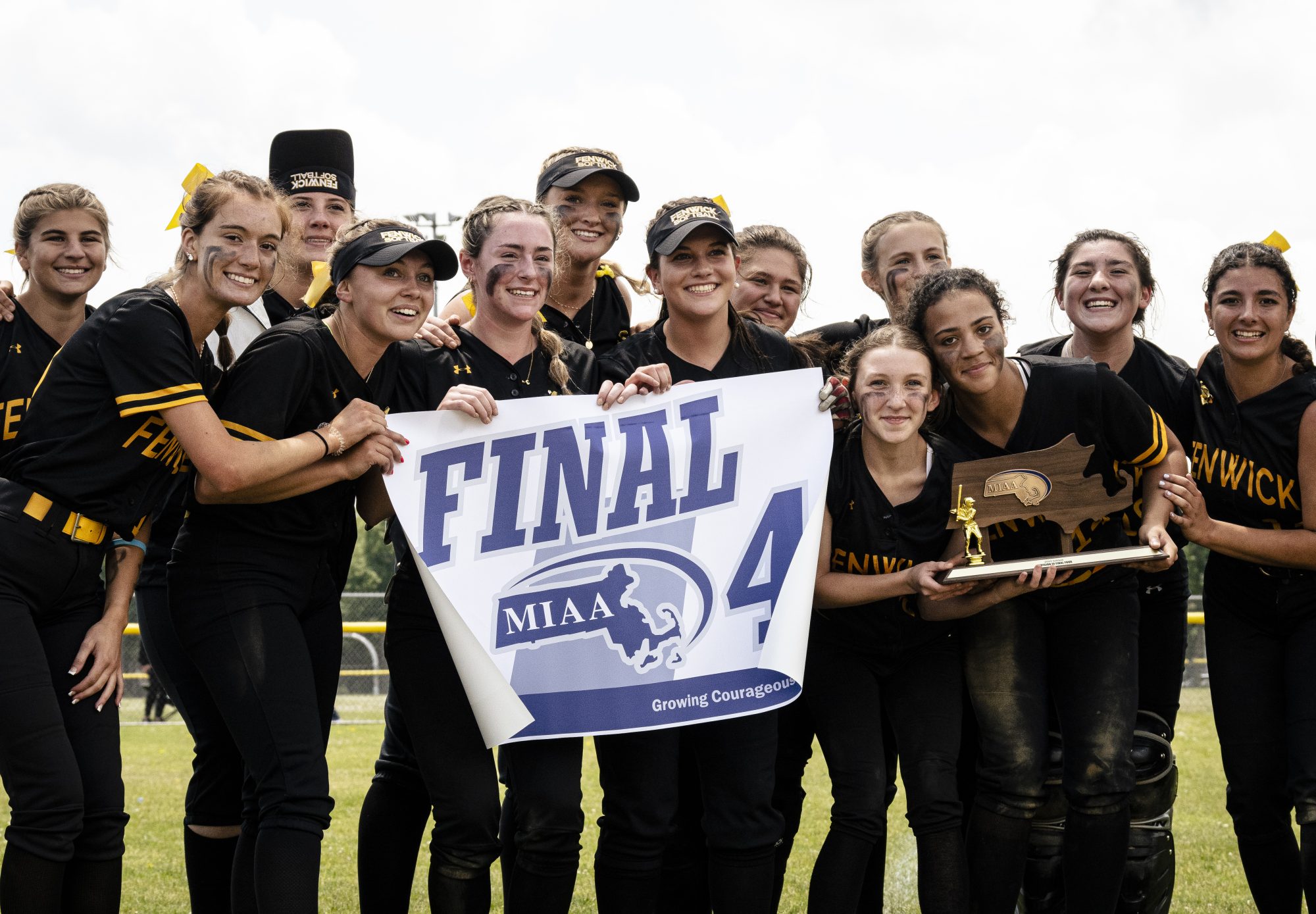LAWRENCE — The fate of a motion for emergency injunction filed by Bishop Fenwick High School against the Massachusetts Interscholastic Athletic Association that would allow the school’s sports teams to compete in playoff tournaments this year is now in a judge’s hands after attorneys for both sides argued the merits of the motion and the ban itself.
A decision from Superior Court Judge Janice Howe is expected to be handed down later this week, though the exact timing of when Howe will rule remains unclear. During an hour-long court proceeding Monday afternoon, Fenwick Attorney Leo Fama argued that the MIAA, as a quasi-judicial body, is subject to the regulations of Mass. General Law Chapter 30A and unjustly punished the school for what the MIAA has said were repeated violations of the organization’s rules.
While Fama did not seek to argue Fenwick did not violate the rules, he did argue that the punishment — a postseason ban for all the school’s teams — was “arbitrary and capricious,” and unjustly punished students for errors made by administrators. And, he said, students completely disconnected from the allegations against the school will have to bear the brunt of the suspension, constituting “irreparable harm.”
Fama’s motion presents four factors by which the court should consider the matter: the reasonable likelihood of success of the underlying claim being made by Fenwick that the ban is unjust, that the school is likely to suffer irreparable harm as a result of the ban, that the harms the school would face outweigh those faced by the MIAA, and that the public interest favors granting the injunction. During his remarks to Howe, he sought to explain how Fenwick fit those boxes.
Primarily, Fama contended that the MIAA acted unjustly in suspending Fenwick — as “judge, jury and executioner” — during a process with little transparency and few options for the school. Fama compared the situation to that of a parking ticket, for which a defined appeals process is laid out. Here, Fenwick was left in the dark, Fama said. And, he argued, there was no precedent for the punishment handed down to Fenwick, particularly compared to penalties for other schools.
“All I know is the punishments are vastly different,” he said, adding that Wachusett was let off the hook after agreeing to recognize that mistakes were made and pay legal fees. But, when Fenwick President Tom Nunan wrote to the MIAA with a plan for next steps, it was deemed “not good enough.”
“I’m not saying there was no basis for them to sanction (Fenwick) in some way. What I’m saying is it’s disparate,” Fama said. “And there’s no way to appeal, no way to challenge.”
Fama also sought to compare the experience of student-athletes missing out on playing in the postseason to that of missing a season in its entirety and argued that students’ prospects of playing in college or beyond may be harmed by Fenwick’s exclusion from power rankings this season. And, he contended that the public at large would be served by allowing the best teams to compete in the postseason.
By allowing Fenwick to participate, the MIAA would also not be excluding any other schools, as Fama pointed out that any teams that win 50% or more of their games make the postseason automatically.
Fama also argued that Fenwick officials were not able to adequately prepare when they received word from the MIAA that a hearing was going to be conducted on apparent violations.
“If we knew what we were getting into, there were a number of witnesses that would have been called, there may have been additional evidence. We went in blind,” he said.
Much of the counterargument from MIAA Attorney Kay Hodge addressed the very structure of the organization, and that as a member organization, schools accept the rules and regulations set out when they join. Fenwick, by choosing to join the MIAA, accepted the rules laid out in the organization’s rule book and the penalties set out.
“We say to you, when you become a member at the very outset, you agree to the rules,” Hodge said. “The rulebook is a product of the members trying to control themselves and each other and giving notice to members from their own members about what is allowed and what is prohibited.”
Hodge also described Fenwick’s alleged failure to seek a waiver to allow a seventh-grade student at St. Mary’s to play on a high-school varsity baseball team for the school as an “egregious violation” of the rules.
“The board of directors and members of the MIAA expect each other to comply with the rules, and not to continuously accept punishment if they get caught when a concerned parent writes to them,” she said. “It is quite clear that the MIAA can and the board of directors can impose any penalty,” which she added includes a tournament ban akin to what Fenwick received.
“The fact of the matter is that the rules clearly state that that is the sanction,” she said.
And, Hodge contended that Fenwick officials did not accept accountability or responsibility for the alleged transgressions when they appeared before the MIAA board, which comprised their peers, including athletic directors, superintendents of schools, a member of a School Committee, and other officials. Fenwick officials also allegedly ignored prior warnings from the MIAA about misleading the organization, she said.
“In this instance, as a member organization, the MIAA has the authority… to make rules, to choose to control each other based upon what they think is reasonable judgment, and I believe that is what you have here,” Hodge concluded.

